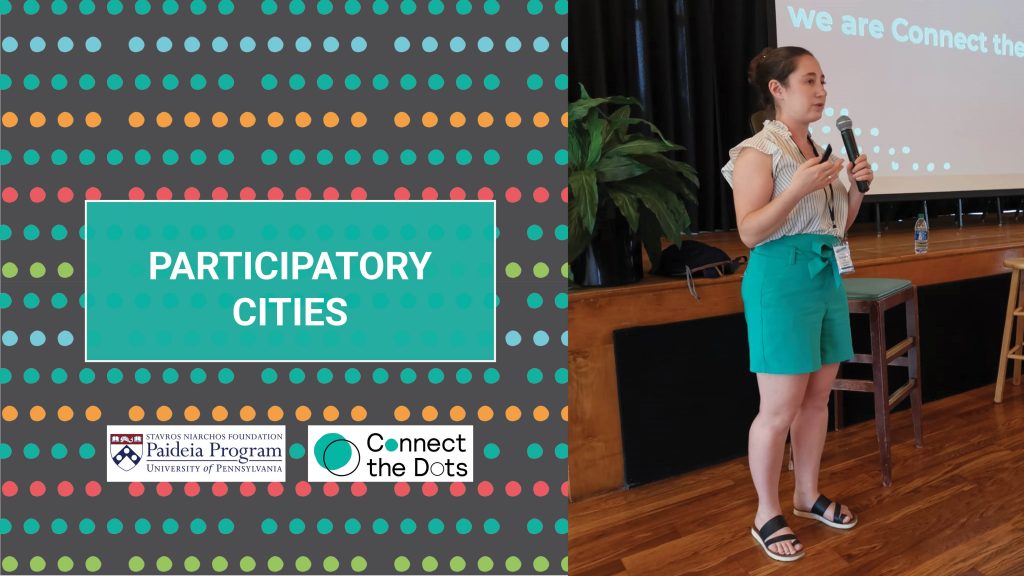
Connect the Dots founder and director Marisa Denker will be teaching a course at the University of Pennsylvania this fall: Participatory Cities. Participatory Cities will explore how communities, stakeholders, and other players contribute to cities, as well as how engagement can be designed to bridge divides and break down barriers to inclusivity. The course will also welcome weekly guest lecturers who will share their expertise in urbanism and engagement. Each lecture will be recorded and made available to the public, so stay tuned for other opportunities to interact with the course.
It will dive into key questions such as: How can citizens be engaged in the decision making processes about the places where we live, work, and play? Against the backdrop of increasing inequality and inequity, what role can citizens play in co-creating more just cities and neighborhoods? How can we work to make sure that all kinds of voices are meaningfully included, and that historically muted voices are elevated to help pave a better path forward?
Take a look at what motivated Marisa to build a career out of meaningfully engaging with communities, and why she’s back teaching at her alma mater today:
“While a student at Penn, I often had difficulty negotiating my role as a student at a prestigious, moneyed university and as a resident of West Philadelphia – alongside the vast difference in resources of the two ecosystems. It often felt as if they were two entirely different worlds parallel to each other, but never meaningfully coinciding. It also often felt as if it was that way by design.
Rather than accept the invisible – yet very real – walls between the campus and the neighboring communities, I instead worked to cross them, and when I could, break them down. I took ABCS courses, participated in Urban Studies courses with fieldwork, volunteered, and took part in local activities and commerce. Yet it never felt quite enough; it never felt like I was breaking through meaningfully enough or making a difference. Moreover, even those attempts were still shadowed with the understanding of Penn’s history with the area, and the knowledge that on a systemic level, there was much more work to be done…
Together, we can provide the opportunity for Penn students to look critically at their role, their power, and their place at Penn, in their neighborhoods, and in their city – and shape their role to be that of an active citizen that participates in civic life and works to support the communities in which they live.”
Special thanks to the Stavros Niarchos Foundation (SNF) for hosting this course through the Paideia Program, which holds designated undergraduate Academically Based Community Service (ABCS) courses that explore the theory and practice of dialogue across difference, and its relationship with service and wellness from interdisciplinary perspectives.


